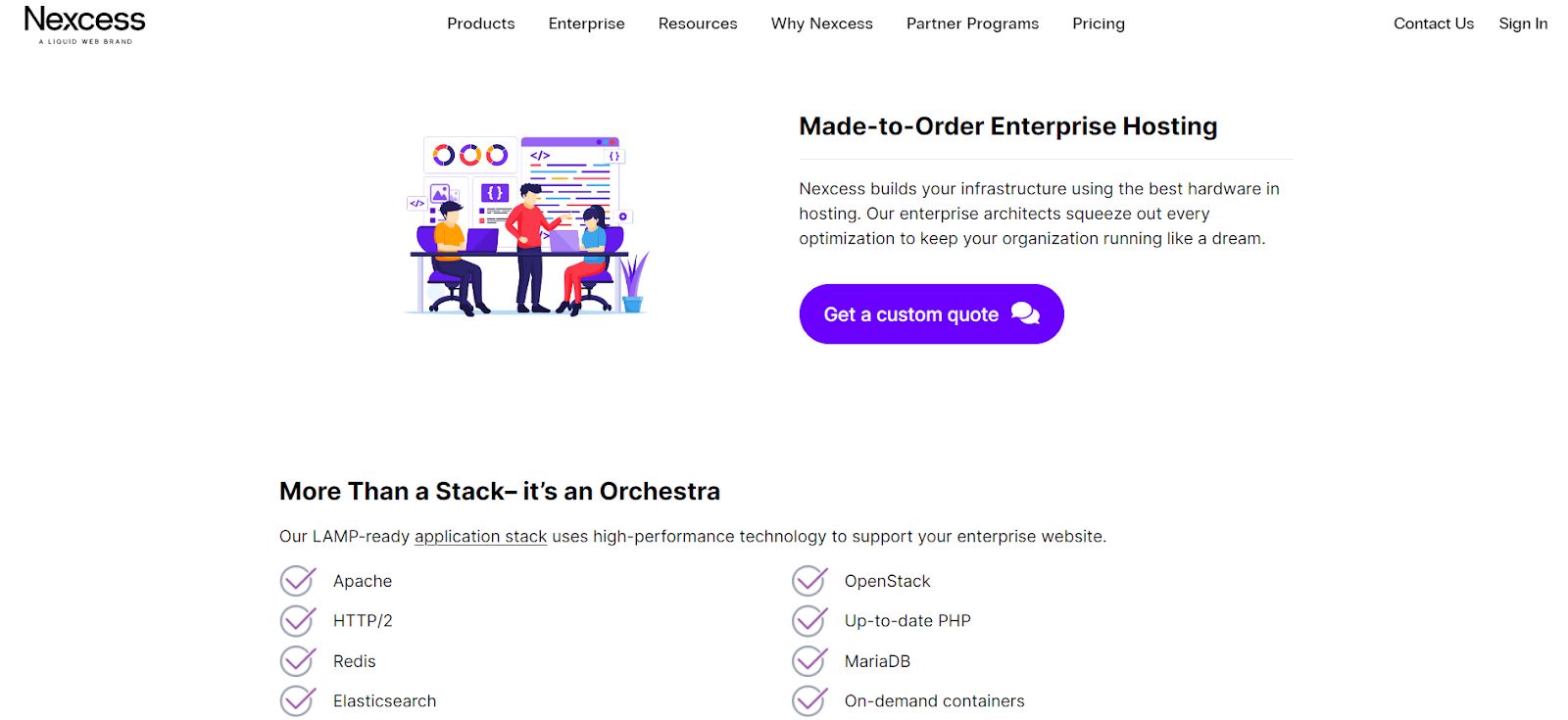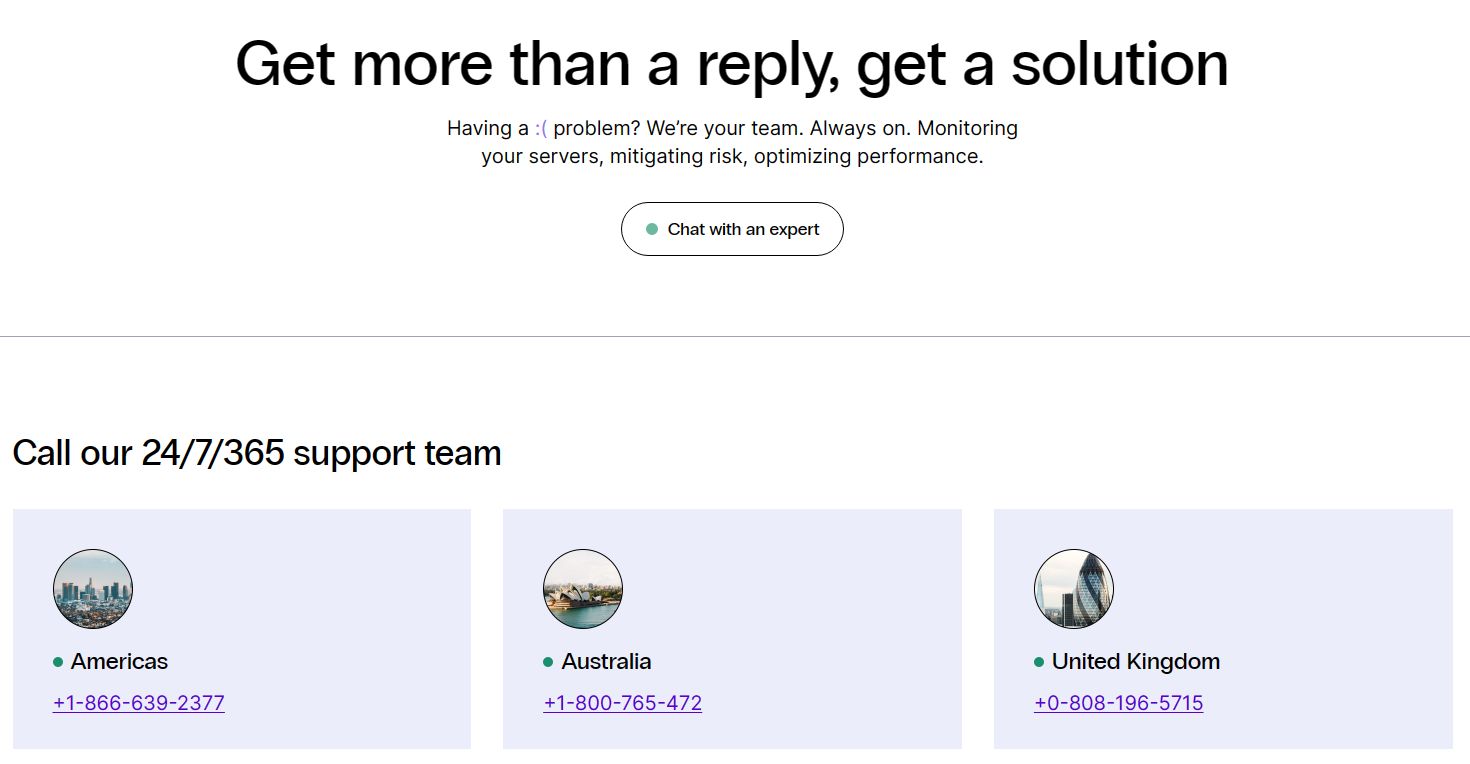Gartner predicts that worldwide spending on public cloud will reach nearly $600 billion in 2023. This comes as no surprise since cloud adoption is crucial to a business’s digital transformation.
You can host your applications and websites over a network of cloud servers and benefit from scalability, reliability, and speed.
Still, the shift over to the cloud can go two ways: managed cloud hosting or unmanaged cloud hosting.
What are the differences between the two and which one should you choose?
To help you get the answers, we’ve put together a guide that details what you should know in the managed vs. unmanaged cloud comparison.
Here’s what we’ll cover:
- What is managed cloud hosting?
- What is unmanaged cloud hosting?
- Unmanaged vs. managed cloud hosting: the differences
- Final thoughts: Managed vs. unmanaged cloud: what’s the difference?
What is managed cloud hosting?
In managed cloud hosting, your cloud provider or web host provider manages all aspects of your cloud infrastructure — server setup, maintenance and monitoring, data backups and security, troubleshooting, and performance monitoring.
In other words, the cloud provider manages the technical side of your cloud environment while you focus on running your business.
For businesses that want a hands-off approach to server management or have complex cloud infrastructures and would prefer to outsource their IT needs, managed cloud services provide exactly that.
According to a 2022 IBM study, 69% of teams lack the necessary skill set to manage cloud workloads. So, managed cloud hosting or a done-for-you cloud service can definitely help you enjoy the freedom of cloud even with skill gaps in your IT team.
Get fully managed hosting from Nexcess
With stronger scalability, security, & expert hosting support
Advantages of managed cloud hosting
Here are some advantages of managed cloud hosting:
- Guaranteed uptime: With managed cloud, your hosting provider ensures the ongoing availability of your website to visitors. Usually, hosting providers have service-level agreements (SLAs) of over 99% uptime.
- Excellent performance: A managed host offers features that boost site speed (like caching) to help you accommodate traffic spikes.
- Technical support: Moving your site over to the cloud can be overwhelming. But with managed cloud hosting, your web hosting provider can assist with cloud migration or handle server setup.

Disadvantages of managed cloud hosting
Still, managed cloud hosting isn’t without drawbacks. Let’s take a look:
- Limited control: As the service provider manages the cloud environment, you have less control than in unmanaged hosting.
- Expensive: It costs more than unmanaged services because your hosting provider offers technical support and advanced features. That said, hosting providers come with varying price points so you can choose one that aligns with your budget or needs.
What is unmanaged cloud hosting?
In unmanaged cloud hosting, you, the business owner, are solely responsible for managing and maintaining your cloud infrastructure.
Typically, you rent server resources or IT infrastructure from public clouds like Amazon Web Services (AWS) and manage your own server.
If you prefer managing your cloud resources internally or without input from a service provider, unmanaged cloud hosting is a suitable option.
Advantages of unmanaged cloud hosting
The advantages of unmanaged cloud hosting include:
- Complete control: Unlike managed cloud hosting, unmanaged cloud allows you to configure, manage, and maintain your hosting environment to your desired specifications or business needs.
- Affordable: Unmanaged cloud is cheaper than managed cloud hosting since you manage your hosting setup on your own terms. However, you can still face some challenges that can drive up costs (more on this later).
Disadvantages of unmanaged cloud hosting
Like managed cloud hosting, unmanaged cloud hosting has certain drawbacks:
- Increased security risks: In-house security measures might be insufficient which can lead to data breaches.
- Time-consuming: Unmanaged cloud hosting requires a lot of time and effort. Thus, it can become cumbersome, and you might have to divert attention from your business or performing high-level tasks.
Unmanaged vs. managed cloud hosting: the differences
Now that we’ve covered the basics, let’s go through the differences in depth — starting with the security.

Security
Data security remains a growing concern among businesses. JD Sports, for example, suffered a data breach where a hacker accessed data of 10 million customers.
With managed cloud hosting, your hosting provider handles cybersecurity. It provides you with security mechanisms to safeguard your data and mission critical applications.
And if you opt for a managed provider that’s well-versed in latest security technologies and prioritizes your data security, you can rest assured and focus your energy on the core business.
For example, Nexcess believes that “prevention is better than cure” and offers proactive security that includes server monitoring and automatic updates.
On the other hand, with unmanaged cloud hosting, securing your data falls squarely on your shoulders. Given the dynamic nature of security threats, this might mean an uphill task for your in-house IT team if you don't have security experts on your team.
Moreover, security breaches are inevitable. So if your team lacks the capability to investigate and respond to data breaches, you might be subject to privacy lawsuits sooner or later.
Price
Unmanaged cloud hosting is cheaper if you only consider the sticker price.
Otherwise, unmanaged cloud hosting can cost more than managed cloud hosting because you’ll have to hire and maintain full-time IT personnel. And as you scale, you’ll have to allocate funds to train your in-house team as well.
In contrast, with managed cloud hosting, you pay more in subscription fees, but you can upgrade or downgrade your hosting depending on your business demands or cloud resource requirements.
In other words, you might get both options at comparable prices. However, unmanaged cloud hosting means higher upfront costs, while managed cloud hosting translates into higher recurring costs.
Customer support

Managed cloud services usually come with readily available customer support.
For example, with a Nexcess enterprise hosting plan, you’ll get around-the-clock support on multiple channels. What’s more, we have technical support reps with diverse skill sets, so no matter how complex your problem is, you’ll get a solution.
Besides being able to rely on managed hosting’s support to solve complex issues, you can also interact with them to optimize your website and make the most out of your cloud solution.
With unmanaged cloud hosting, you rely on your internal IT team to handle technical issues as they occur. And if they can’t solve a certain issue, you suffer from an extended downtime, negatively impacting your bottom line.
Storage
With managed cloud hosting, your hosting provider manages stored data and ensures its ongoing availability — anytime you need it. To that end, it typically offers automatic data backups, disaster recovery, security, and access control.
Besides that, managed hosting providers also ensure you adhere to compliance requirements with stored data. For example, Nexcess offers PCI compliant hosting and our compliance experts guide you on the best practices to stay compliant.

In unmanaged cloud hosting, managing stored data is your responsibility. You have more control over your data, but you need to ensure compliance with the privacy laws and payment regulations yourself.
Maintenance
Earlier on, we mentioned that managed cloud hosting includes server maintenance. That’s because your work doesn’t end once your site is up and running.
For instance, your managed cloud provider might offer server performance monitoring, auditing, threat detection, software upgrades, and more at regular intervals. This regular maintenance helps keep your business or ecommerce site running like a well-oiled machine ensuring you maintain business continuity.
On the flip side, unmanaged cloud hosting requires your IT team to step up and maintain the server. You’ll have to monitor the resource utilization, upgrade outdated software, and close backdoors.
If you have an expert in-house IT team, this might feel like a breeze. Otherwise, the tasks might overwhelm you and lead to a pause of business activities.
Final thoughts: Managed vs. unmanaged cloud — what’s the difference?
Shifting over to the cloud can yield desired business outcomes and streamline operations. But should you go for a managed or unmanaged cloud?
If you’ve got spare hands in your IT team, unmanaged cloud lets you enjoy the freedom of cloud at lower recurring costs.
However, if you’re looking for a ready-made cloud solution, opt for managed cloud services.
At Nexcess, we offer affordable managed cloud hosting plans with proactive security, expert support, and more.
Check out our plans to get started today.

